House plants are the new secret to making your home and Singapore garden Instagram-worthy. What’s more, creating your very own urban garden at home purifies the air, brightens the environment, and gives your place a lush, chic, and homely feel.
However, a trip to the plant nursery can make your head spin at the wide variety of choices on offer: from perennial blooms to air plants and the dozens of cacti and succulents, choosing indoor plants in Singapore can be tough.
Never fear, STYLEGUIDE is here to list down the 9 perfect indoor plants to keep in your home for a fuss-free plant-parenting experience. Make gardening in Singapore from the comfort of your home a zen-like practice!
Our Curated List of Indoor and House Plants Singapore:
Orchids
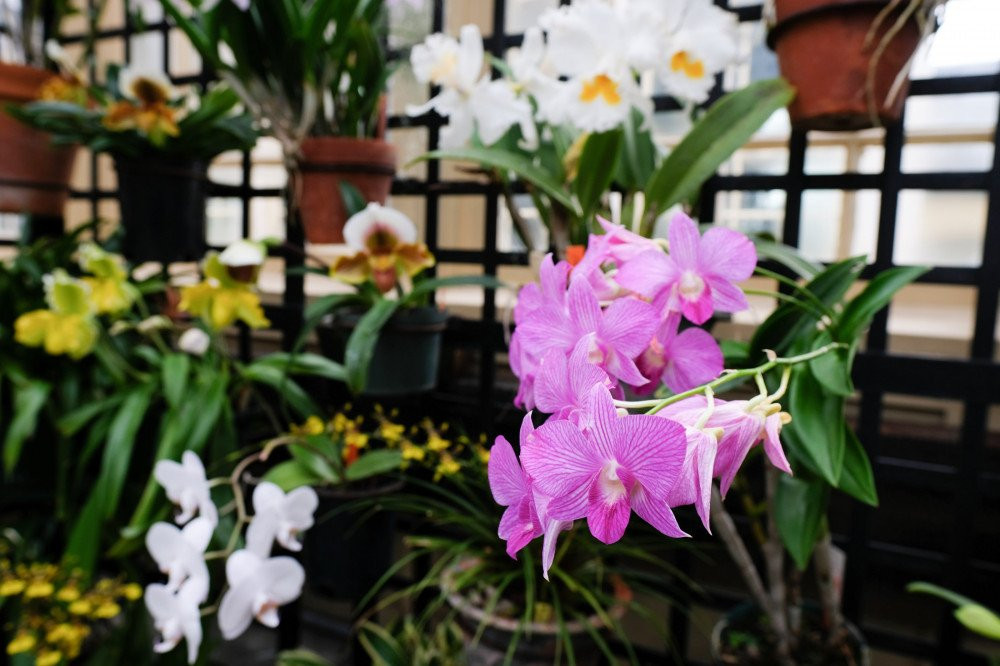
credit: Erin Mcgrady/shutterstock.com
This beautiful plant comes in a wide variety of colours and styles. They are also great for filtering xylene, a harmful ingredient found in many glues and paints, from the air. Orchids require light and humidity, which makes it a great choice for Singapore’s climate. They make accent pieces, and are fantastic housewarming gifts, or just when you need to add a pop of colour to your living space - they also make for great indoor plants that would not only brighten up your room and garden, but your day as well!
Grower’s tip: Water your orchid plant lightly. Orchids can burn easily, so keep them in a bright spot without direct sunlight.
Snake Plant

credit: Vitaly Kryrychuk/shutterstock.com
Don’t have a green thumb? You’ve come to the right place. The snake plant, also known as “mother-in-law’s tongue” (yikes) grows very easily with minimal care. In fact, they can be neglected for weeks, and still survive well. Furthermore, they require moderate light levels, infrequent watering, and have few insect problems. Snake plants also filter harmful oxides and formaldehyde from the air.
Grower’s tip: Avoid over-watering your snake plant, once every few weeks is sufficient. Make sure the soil is completely dry before you water the plant, and never pour water directly over its leaves.
Money Plant
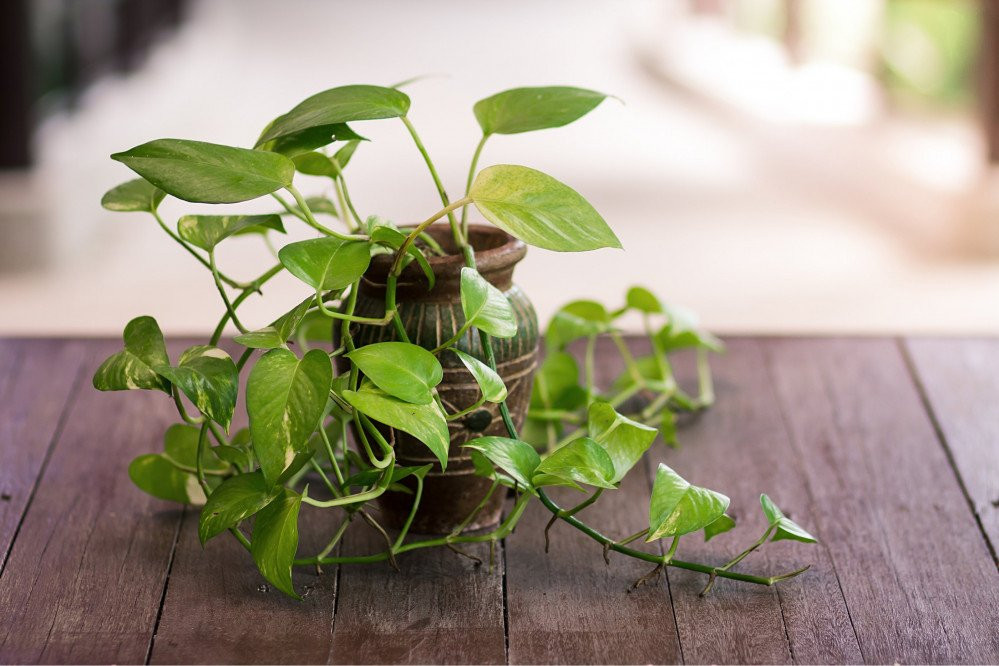
credit: Songyos Ruensai/shutterstock.com
If you’ve got a superstitious aunt or uncle in the family, you’ve probably heard of a money plant, or seen it placed somewhere in the house or garden. Not only is the money plant considered good for feng shui and bringing luck, it also makes for a great indoor plant. They are low-maintenance and require little tending to. Money plants are relatively small, making them good additions to any home.
Grower’s tip: Money plants require watering every 7-10 days, or when the soil is dry to the touch. They grow best in partial sunlight.
Peace Lily
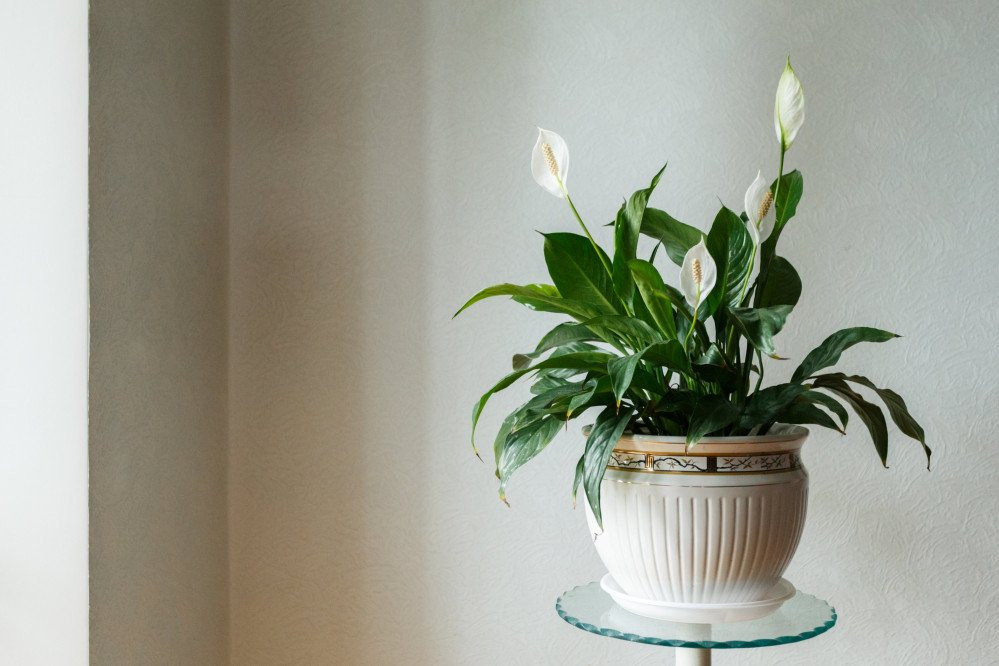
credit: Sveten/shutterstock.com
For those who want an elegant touch to their living space, the Peace Lily is one of the few flowers that bloom indoors without much light needed. With its delicate flowers and glossy, green leaves, this lush plant improves the air quality of the space. A favourite among local house plant enthusiasts, the Peace Lily instantly livens up any home environment.
Grower’s tip: Peace Lilies will benefit from weekly waterings (or when soil is dry to the touch) and a feeding fertiliser once every few weeks.
Zanzibar Gem, or ZZ plants
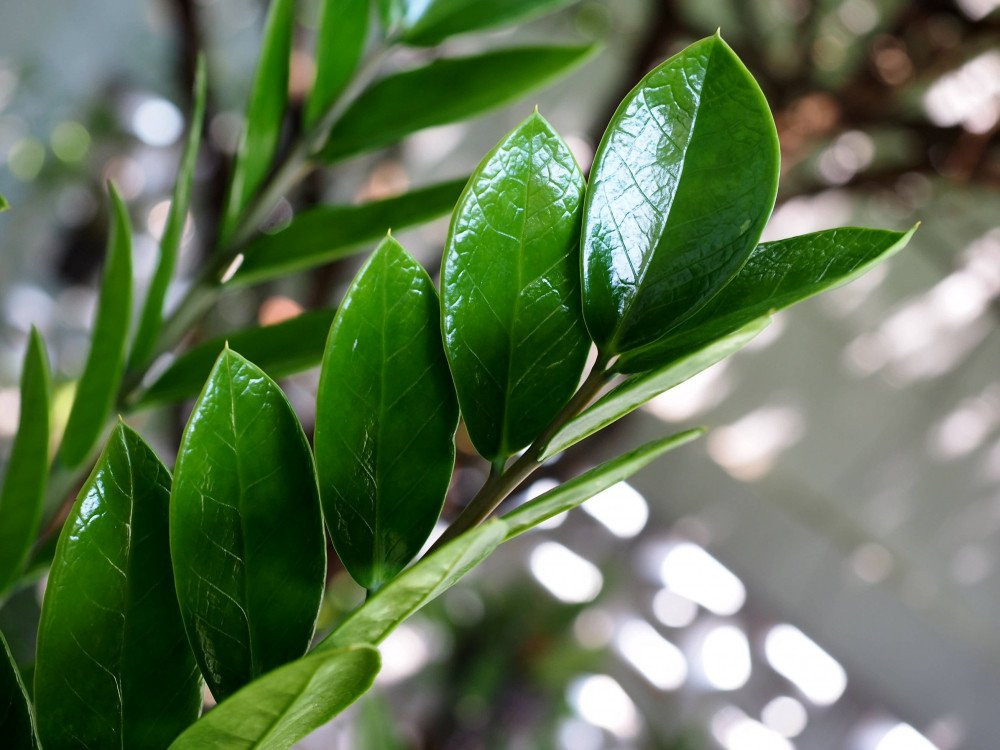
credit: Huaykwang/shutterstock.com
With their sleek, waxy leaves, the leaves of this plant look like gems glowing in the light during the day. They’re super hardy, and require watering just every two weeks. They can tolerate low levels of light indoors and are slow growers that do not require frequent transplanting. Zanzibar Gems are also very tolerant to insects and diseases.
Grower’s tip: ZZ plants store water in their roots, so avoid over-watering as it can cause them to rot.
Aloe Vera Plant
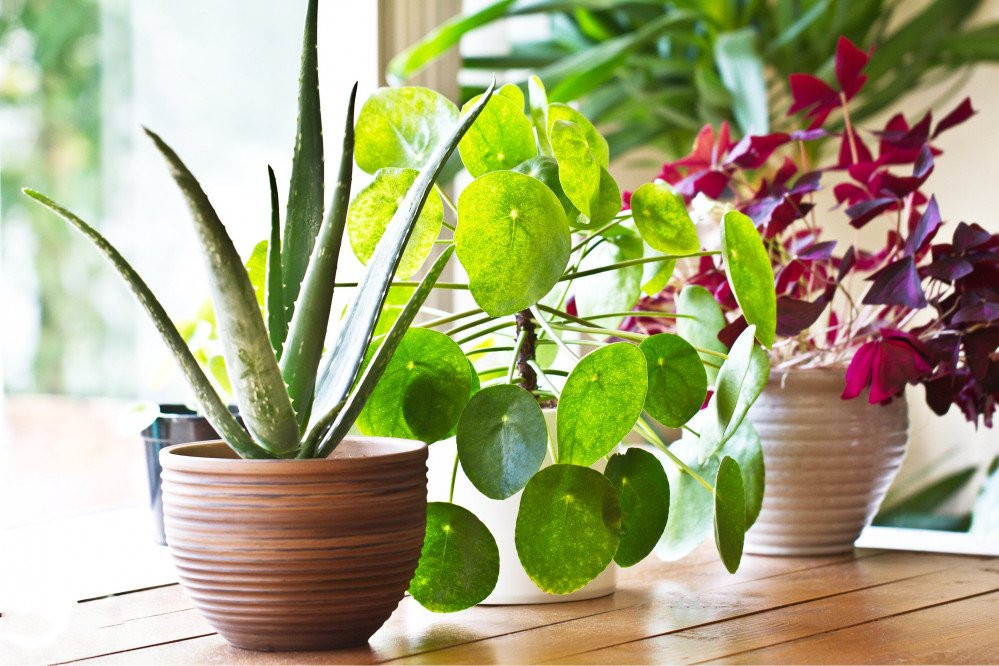
credit: CLICKMANIS/shutterstock.com
Aloe Vera plants are famed for their natural soothing properties on the skin, and is commonly used to soothe minor burns and rashes. Similar to succulents and cacti, the Aloe plant requires minimal watering and generally little care. This hardy choice is also well-loved for its unique shape and bright green colour.
Grower’s tip: Aloe grows best in bright light. Make sure that its pot has drainage holes as it thrives without the soil being too moist.
Parlour Palm
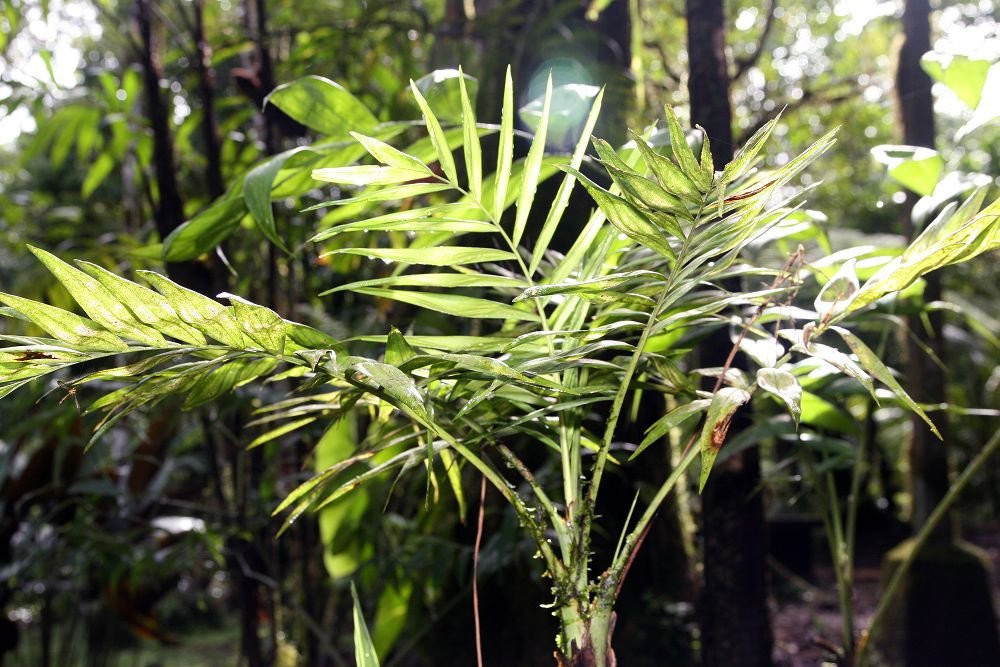
credit: Wiki Commons
This palm is a popular houseplant for its hardy properties, as well as its super Insta-worthy aesthetic quality. it is slow-growing, which makes it ideal for those with limited space in their homes. The slender, deep green leaves exude a calm, beachy vibe, and can instantly transform your living environment into a laidback, relaxed space.
Grower’s tip: Keep your Parlour Palm in low to moderately bright light. Check for yellowish-green leaves, which may be a sign of too much sunlight.
Monstera, or Swiss Cheese Plant
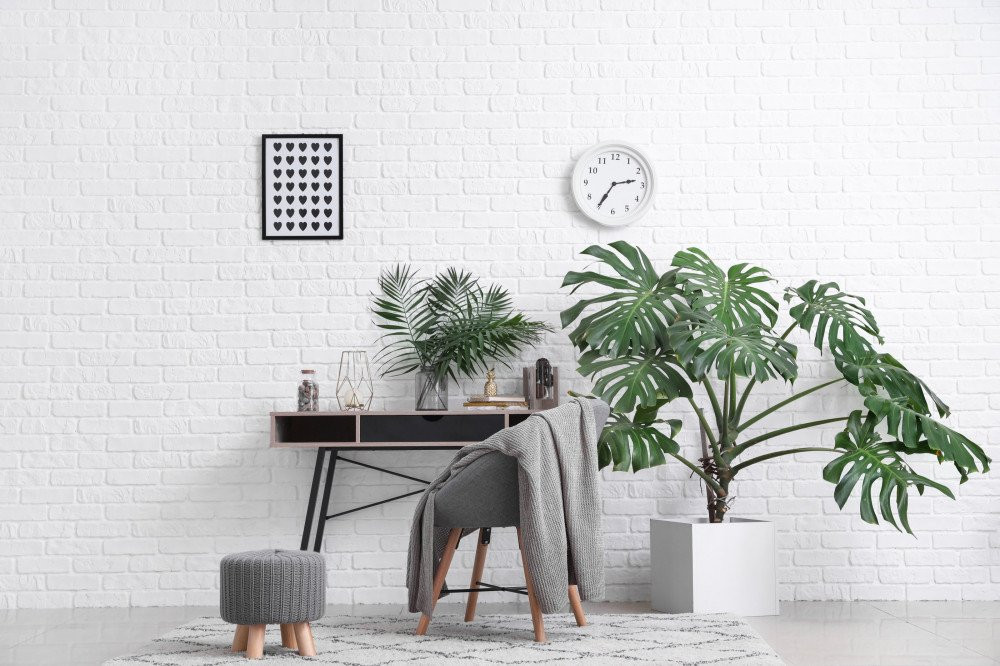
credit: Aquarius Studio/shutterstock.com
If you’re looking for a statement piece to add to your home, the Monstera’s distinct, lush leaves should do the trick! This elegant plant can grow in virtually any space, with little sunlight and low maintenance. This plant is better suited for bigger areas like the living room, as they require more space to grow.
Grower’s tip: Monstera plants thrive in indirect sunlight, with moderate watering only when the top of the soil is dry.
Succulents

credit: asharkyu/shutterstock.com
Available in a wide variety of shapes, sizes and colours, succulents are a popular choice for those looking up to liven up their living environment without taking up too much space. They’re also relatively affordable, and make great gifts. If you’re a budding plant enthusiast, these also make for great starter collections if you want to display your very own arsenal of fun-sized plants.
Grower’s tip: Succulents grow best in partial sunlight with moderate waterings when the soil is dry.
Bonus tip: If you're still having trouble figuring out what plant best suits your lifestyle, head down to a local nursery to survey your options! Growers will be able to provide custom advice to find the perfect plants for you, and provide you with more information on how to properly care for them.
















